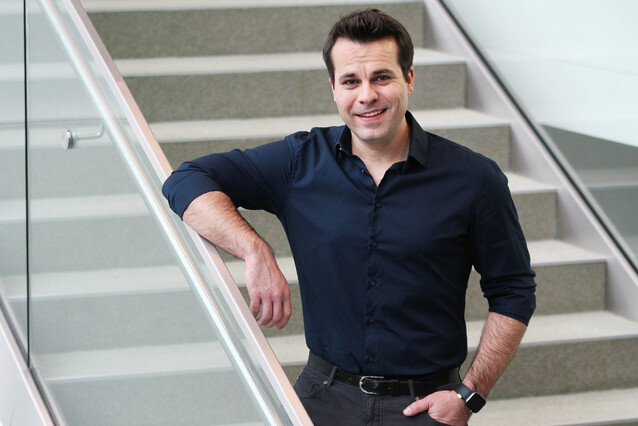FWF and ÖAW award "Disruptive Innovation Grant" to Johannes Schmoellerl
Johannes Schmoellerl, postdoctoral researcher with Johannes Zuber, is awarded one of 30 “Disruptive Innovation Grants” to study therapy resistance of an aggressive type of blood cancer. The new funding scheme of the Austrian science fund FWF and the Academy of Sciences aims to support innovative ideas of early career researchers.
Acute Myeloid Leukaemia (AML) is an aggressive form of blood cancer, associated with poor prognosis and very limited treatment options: strong chemotherapy and only few targeted therapies exist for patients with specific genetic alterations. Although these interventions can initially often successfully reduce the leukaemia burden, many patients eventually relapse with a form of the disease that is therapy resistant. Recent research suggests that a small number of cancer cells, called Drug-Tolerant Persisters (DTP), can survive the initial treatment by adapting to the new environment that is created by the therapy. These cells can persevere until either the treatment is stopped, or they eventually acquire new mutations that make them resistant to therapy.
Johannes Schmoellerl, postdoctoral researcher in the lab of Johannes Zuber, thinks that the ability of these DTP cells to survive treatment is controlled by certain genetic programs that are switched on once the initial cancer treatment begins. By understanding and targeting these programs, clinicians may ultimately be able to prevent cancer relapse in future.
Using the “Disruptive Innovation Grant” of the Austrian Science Fund (FWF) and the Austrian Academy of Sciences (ÖAW), Schmoellerl will study the genetics of DTP cells in vivo upon chemotherapeutic and targeted intervention: “We need to identify the molecular programs that make these persister cells resilient to treatment, and then systematically test which of these we need to block to target them effectively,” says Schmoellerl.
“Disruptive Innovation - Early Career Seed Money” is a joint funding programme of ÖAW and FWF to enable the implementation of “unconventional, innovative and possibly very risky ideas with an uncertain outcome”. It is financed by the National Foundation for Research, Technology and Development with funds from the Fonds Zukunft Österreich (FZÖ). The funding is cross-disciplinary and cross-thematic. In this first call of the funding programme, 30 projects were selected.
Johannes Schmoellerl joined the Zuber lab as a postdoc in 2020., after his PhD at the Medical University of Vienna. Before, Schmoellerl completed his master's at Harvard Medical School (Boston, USA), and at the Beth Israel Deaconess Medical Center. He studied Biomedical Sciences at the FH Campus Wien and Biomedicine & Biotechnology at the University of Veterinary Medicine, Vienna.
Further Reading
Disruptive Innovation Programme
Cancer research: key function of important leukaemia gene demystified
